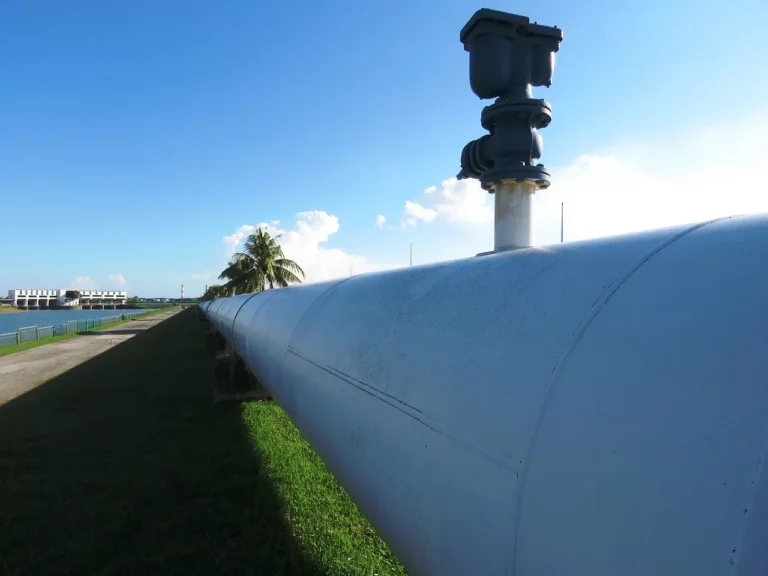
BKV and CIP Launch $500M Carbon Capture Joint Venture
BKV Corporation (“BKV” or the “Company”) has officially announced the formation of a strategic joint venture (JV) with Copenhagen Infrastructure Partners (“CIP”), designed to accelerate the expansion of BKV’s carbon capture, utilization, and sequestration (CCUS) portfolio. This joint venture combines the expertise and resources of BKV dCarbon Ventures, LLC (“dCarbon Ventures”), a wholly-owned subsidiary of BKV, and CIP’s Energy Transition Fund I, with the goal of developing CCUS projects across the United States.
CIP has committed to invest $500 million through its Energy Transition Fund I, which will be used by the JV to design, construct, and operate various CCUS projects throughout the country. In return for this capital commitment, CIP will hold up to a 49% stake in the JV. Meanwhile, BKV has contributed two significant CCUS projects to the JV—the Barnett Zero and Eagle Ford projects—and will further contribute additional projects, assets, and/or cash to the JV. This enables BKV to retain a 51% ownership interest in the partnership.
The formation of this JV highlights BKV’s strong position in the CCUS sector, having already established itself as an early leader in the development of carbon capture solutions. By partnering with CIP, which brings considerable expertise in low-carbon infrastructure development, BKV gains access to both substantial capital and a deep network of industry knowledge. Together, BKV and CIP are poised to identify and develop investment-ready CCUS projects, with BKV taking the lead role as the operator of all projects within the JV.
Chris Kalnin, CEO of BKV, expressed his optimism about the strategic partnership, noting, “This collaboration with CIP, a globally recognized asset manager of low-carbon infrastructure, enhances the economic foundation of BKV’s CCUS business while accelerating our growth trajectory.” Kalnin continued, “Together, we will expand our portfolio of carbon capture, utilization, and sequestration projects to meet the growing demand for sustainable, low-carbon energy solutions. By combining BKV’s technical expertise and operational know-how in developing and scaling CCUS projects with CIP’s vast infrastructure experience, we are well-positioned to advance our CCUS business. This partnership will also help us expand into new markets, industries, and geographic regions.”
BKV’s CCUS portfolio already includes several key projects that are progressing through various stages of development. The Barnett Zero Project, located in North Texas, has already successfully sequestered over 200,000 tons of CO2 equivalent since its inception in November 2023. The Eagle Ford Project, located in South Texas, is expected to begin its first injection of CO2 in the first half of 2026, contingent upon receiving the necessary permits and completing the required agreements. These two projects, among others, have been contributed to the JV and will form the foundation for further developments in the coming years.
As part of BKV’s broader CCUS strategy, the company plans to continue growing its portfolio by adding more projects to the JV as they reach appropriate stages of development. BKV’s commitment to the ongoing expansion of its CCUS initiatives positions the company to be at the forefront of the energy transition, helping to address both environmental and regulatory pressures by capturing and storing carbon emissions in key areas of the U.S. This partnership will play a vital role in enabling BKV to fulfill its mission of providing sustainable energy solutions while reducing the carbon footprint of the energy sector.
For CIP, the partnership aligns with the company’s long-standing commitment to supporting the global energy transition. CIP has a track record of successful investments in low-carbon infrastructure, and this collaboration with BKV allows the firm to further diversify its portfolio by including significant CCUS projects. By investing in a sector that directly contributes to the reduction of greenhouse gas emissions, CIP is further solidifying its position as a leader in the renewable energy investment space.
The joint venture between BKV and CIP comes at a time when the demand for low-carbon energy solutions is rising sharply. As the U.S. and other countries around the world work to meet climate targets and reduce carbon emissions, CCUS technologies are increasingly seen as a critical part of the solution. With the support of CIP’s capital and BKV’s expertise, the JV is well-positioned to play a leading role in the development of these essential technologies.

The development of CCUS infrastructure is essential to addressing the challenges of climate change. The U.S. government has placed a heavy emphasis on carbon capture and storage as part of its broader strategy to achieve net-zero emissions by 2050. Several regulatory frameworks, including incentives like the 45Q tax credit, are designed to accelerate the commercialization of CCUS technologies. These policies are expected to help fuel the expansion of CCUS projects across the country, making it a particularly timely and strategic investment for both BKV and CIP.
Jefferies LLC served as the exclusive financial advisor for this transaction, providing valuable guidance throughout the process. The deal was led by Ananth Shankar, Managing Director of Jefferies’ Energy Transition team. BakerHostetler acted as legal counsel for BKV, ensuring that the transaction adhered to all necessary legal and regulatory requirements.
Looking ahead, the JV between BKV and CIP is expected to lead to the development of a diverse range of CCUS projects across the U.S., with BKV’s role as the operator ensuring the successful implementation and management of each project. These initiatives will not only help address the pressing need for carbon capture but also provide a steady source of revenue and growth for both BKV and CIP.
The partnership is particularly important as it demonstrates the growing recognition of CCUS as a viable solution for reducing industrial carbon emissions. While renewable energy sources such as wind and solar are integral to the global energy transition, CCUS provides an essential complement by enabling industries that are difficult to decarbonize—such as heavy manufacturing, cement, and steel production—to significantly reduce their carbon footprints.
As BKV continues to expand its CCUS business, it will also explore opportunities in adjacent industries and markets, including the potential to deploy carbon capture technology in new geographic regions. The JV with CIP represents an important step in the company’s journey to becoming a global leader in CCUS, offering a long-term growth opportunity in a rapidly evolving energy landscape.
In addition to the expansion of its project pipeline, BKV is committed to maintaining the highest standards of environmental stewardship and regulatory compliance across all its operations. The company is working closely with local communities, governments, and stakeholders to ensure that its CCUS projects meet the highest environmental, safety, and social responsibility standards.
The partnership with CIP is just one aspect of BKV’s broader strategy to create sustainable energy solutions and play an active role in the global transition to a low-carbon economy. As BKV continues to scale its CCUS operations and expand its global footprint, the company is well-positioned to lead the way in the development of carbon capture technologies that will help mitigate climate change and promote a cleaner, more sustainable future for all.







